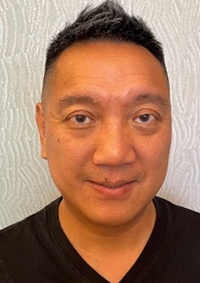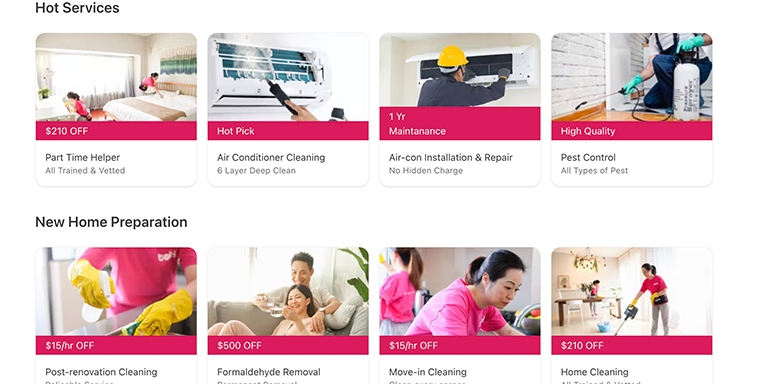
Digital marketplace platform Toby offers services ranging from dance lessons and physiotherapy to cleaning and home renovation. Established in 2016, it currently has nearly a million users across Hong Kong, Taiwan and Singapore and hosts more than 80,000 businesses and service providers.
Instead of relying on referrals from friends, customers can search the site, submit requests and obtain customised quotes after browsing user reviews. Service providers, meanwhile, can list free of charge, receive client requests, then choose who to contact.
Services such as art classes and swimming lessons have proved popular during the COVID-19 pandemic, while cleaning services are always in demand, Toby’s General Manager Andy Lau said, explaining that the platform offers “pros” or “partners” to customers. “Pro is more diversified – people may offer tutoring services and dance lessons, for example. Partners are more like vendors, providing specialised services like air-con cleaning. It’s our job to help them find relevant customers.”
Which services are hot right now?
One of our key verticals is cleaning ladies, and the most popular service we offer is home and office cleaning. If people want a premium service, we can ask cleaners to be more flexible with their timing, or do a deep cleaning, for instance. Other popular services include sports coaches, like yoga teachers and personal trainers, and home-renovation services. We match customers with contractors and help them source materials.
How did you adapt to the pandemic?
When hair and beauty salons closed, we pivoted to other business, such as health clinics and medical centres. We arranged deliveries of items like rapid test kits and polymerase chain reaction (PCR) tests and sent out sample bottles to labs and patients.
What difficulties have you encountered?
It can be a challenge to find the right supplier for customers. A client may want two cleaning ladies, and require them to speak English, for example. Another issue is if we find ourselves with too many suppliers, as some pros and partners may feel they are not getting enough orders [through the platform].
Has interest in your services increased recently?
Yes – people have been signing up for things like one-to-one yoga classes and K-Pop dance lessons, both emerging trends we’ve noticed on the site. These one-to-one services are in high demand and customers can do them at the studio or at home. As people can’t travel, they are seeking out different kinds of entertainment.
How do you ensure service-provider quality?
We have a rating system for suppliers which is similar to Amazon or Uber, and we let users write feedback. We also provide training to suppliers; it’s less about skills and more about how to interact with customers and respond to requests online. If a cleaning lady has come into close contact with an omicron case, for example, we’ll do our best to fulfil that order with someone else. We’ll let them know specifically what to improve on, and check with customers for specifics.
You were initially based at Cyberport. How did that help expand your network?
It was useful as they introduced us to different start-ups and stakeholders and continue to do so, even though we’ve had an office at a more central location for a couple of years. They recently contacted us regarding a delivery of COVID testing samples.
What do you like about doing business in Hong Kong?
It’s a very vibrant market and there’s a good mix of skillsets and languages spoken. We ask our pros to list out the languages they speak and indicate if they are comfortable teaching in English, for example.
Is the business model the same in Taiwan and Singapore as Hong Kong?
It’s very similar but there are some differences. One thing we’ve observed is that suppliers in Taiwan are more tech savvy, and the cleaning ladies are more tech friendly and will use their mobile phones to confirm orders, whereas in Hong Kong, there’s still lot of hand-holding. Singapore is still in the early stages, so we’re still learning there, but obviously it’s more English-oriented. Taiwan is a much bigger market, with 22 million people, so there’s huge potential. We currently have operations in Taipei and Taichung.
Do you hope that people will use Toby like a search engine?
It’s a long shot, and we still need to optimise it. With Google, you can search for everything, while with us customers search for a service. But we’d love to be a search engine for services and are always extending our offerings.
How do you expect the company to evolve over the next 12 months?
We hope that by April or May, things will be more back to normal. A return to travel may not be over so quickly, however, so we expect demand for things like art classes and sports tutors to continue.
Related link
Hello Toby
